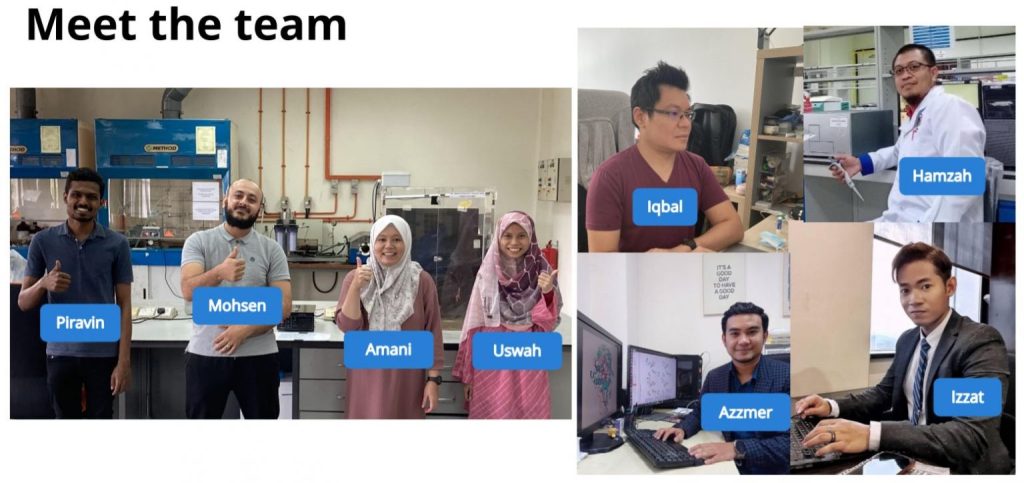
Press Statement (English)
13 Sep 2020
Kuala Lumpur, Malaysia
Dr Amani Salim leads the nanoSkunkWorkX team to develop the world’s first nanotechnology-powered rapid diagnostic kit using saliva for detecting SARS-CoV-2 to diagnose COVID-19. The nanoSkunkWorkX’s Hybrid Rapid Test Kit for SARS-CoV-2 proposal has been selected as one of 15 finalists (and the sole diagnostics-based solution) worldwide for the Health Security and Pandemic category in the MIT Solve 2020 Global Challenges competition.
A record total of over 2,600 solutions from 135 countries were submitted, out of which 90 were selected across 6 categories to present at the Virtual Solve Challenge Finals on September 29, 2020 where over USD $2mm of prize money will be awarded to selected Solver teams.
Dr Amani and team (including key collaborators at the International Islamic University of Malaysia, IIUM) have designed a low-cost (targetted to cost less than USD 1 per test), portable, scalable, foolproof, and fast method for detecting SARS-CoV-2. We aim to make RT-PCR obsolete for the COVID19 war by doing away with the reliance on vulnerable and expensive imported reagent supplies, as well as labour-, energy-, and resource-intensive and immobile molecular diagnostics facilities.
nanoSkunkWorkX’s technology delivers crucial capability especially in low/middle income countries (LMIC) with weaker public health systems, while still delivering high performance (simulated performance 95%++ specificity / sensitivity with LoD of 5 viral copies per uL based on in silico computational molecular modelling). This is achieved using innovative technologies to embed 3D-graphene structures within nanoSkunkWorkX’s nano-engineered Sensor Dot (nSD) technology, applying electrochemical sensing techniques evolved from Dr Amani’s work at NASA with the SporeSat project as well as proprietary molecular assembly techniques developed in Malaysia. Her earlier work that led to innovations pioneered in SporeSat won her the Thora Halstead Young Investigator Award in 2012.
We invite all Malaysians to vote in support of our submission for the Community Prize on top of the primary Solver Funding Prizes in contention.
Dari NASA ke Bumi !
Majulah Sains untuk Negara !
END

